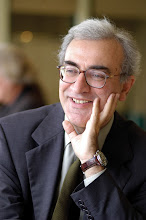Friedman defended his relationship with Pinochet by saying that if Allende had been allowed to remain in office Chileans would have suffered "the elimination of thousands and perhaps mass starvation . . . torture and unjust imprisonment." But the elimination of thousands, mass hunger, torture and unjust imprisonment were what was taking place in Chile exactly at the moment the Chicago economist was defending his protégé. Allende's downfall came because he refused to betray Chile's long democratic tradition and invoke martial law, yet Friedman nevertheless insisted that the military junta offered "more room for individual initiative and for a private sphere of life" and thus a greater "chance of a return to a democratic society." It was pure boilerplate, but it did give Friedman a chance to rehearse his understanding of the relationship between capitalism and freedom.
(Continua)




Sem comentários:
Enviar um comentário